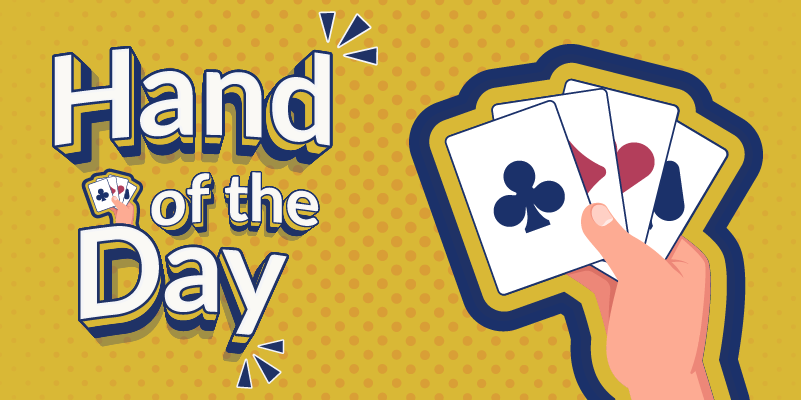



The Aces On Bridge by Bobby Wolff
This hand was dealt in a training session.
Opening Lead: ♥5
East’s sixth trump and extra offense should have seen him compete to three hearts, but South would have taken a pot at three no-trump all the same, with his club fillers and double heart stopper.
West led a count heart five, but the heart eight would surely have been a better choice, leading top of nothing in a suit that had already been raised, since West could not have started with a doubleton heart. Declarer ducked the heart queen and inserted the jack on East’s heart return, throwing a spade from dummy. Declarer then immediately played a diamond up, seeking his ninth trick. West played small, allowing dummy’s king to score, after which declarer cashed out for nine tricks. He was not going to push his luck for a mere overtrick.
On a good day West might have worked out to grab the diamond ace and switch to spades. Declarer was marked with the A-J-x of hearts and it was most suspicious that he was not playing on clubs, dummy’s six-card suit. Clubs were likely to run, and if so, a diamond winner would be South’s ninth trick. Thus, the only chance for the defenders was to win the first diamond and try to cash three spades. One possibility would be for West to table the spade king at trick four but a low spade would cover East having begun with A-J-10 of spades.
Note that if declarer played on clubs before diamonds, the defense would be able to count his tricks and cash out.
Bid with the Aces
Answer: 2♥
This is perfect for two hearts. Such jumps in the balancing seat are intermediate (10-13ish) with a six-card suit. You might ask what you would do with a weak hand here and a six-card major. I’d recommend passing since the downside of acting when weak facing a partner who could not overcall or double surely outweighs the benefit of bidding.




2 hearts